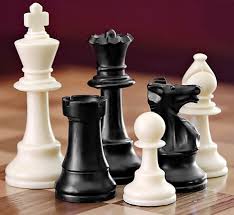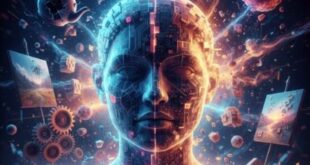While the game of chess requires significant brainpower, there are other factors also th at determine human potential
at determine human potential
Every sport has its top players, who are considered the best in their respective domains. And in the case of legends, they are often considered the best that humanity has ever produced. For example, Usain Bolt is the fastest human being on the planet. It makes us wonder if a similar analogy will be applicable in chess. Can the world’s top chess player be considered the most intelligent in the world? Is chess the ultimate test of human intelligence? To answer such questions, here are some important things to understand.
Excelling in chess requires significant intelligence
Everyone can play chess, but achieving professional success is a totally different ballgame. To become a top-rated chess player, one would require strategic thinking, make back-up plans and learn to tackle new situations evolving in the game. Apart from processing power, a chess player will also need to have excellent memory. It will be needed to devise unique tactics, opening moves and execute endgames flawlessly. Visualization is also necessary, as the overview of the chess board allows the subconscious to evaluate multiple possibilities.
Limited creativity
Chess can have billions of combinations of the white and black pieces. However, it is also true that chess is largely a rule-based game. With the movement of chess pieces pre-defined, the scope of creativity is relatively less. In comparison, the human mind’s creativity can solve a wide variety of problems.
The potential of creativity is a lot more in fields like music, literature, etc. Creativity is also needed in conceptualizing entirely new products and services. Creativity has also played a key role in areas like engineering, rocket science, etc. As such, excelling in chess may not be the only way to test an individual’s intelligence.
Machines defeating humans in chess
With AI and machine learning, advanced chess AI game engines have emerged as powerful chess players. Some examples of AI chess engines include Stockfish, AlphaZero, Komodo, Leela Chess Zero (LCZero) and Houdini. AI chess machines are now consistently defeating humans in chess. It goes on to signify raw processing power and brute-force calculations. But these alone cannot be considered as the ultimate test of intelligence.
It is apparent from above that chess is a good measure of intelligence. But not the ultimate test of intelligence. In a professional setting, various other qualities may be needed to succeed. For example, emotional intelligence, empathy, ability to work as a team, leadership qualities, etc. Chess requires significant brainpower, but it does not encompass the full spectrum of human intelligence.
Chess is a challenging and stimulating game, requiring players to have significant cognitive skills. However, human intelligence is quite diverse. Its scope cannot be limited to a particular game or profession. Intelligence is multifaceted and chess is just a part of it.
 Newspatrolling.com News cum Content Syndication Portal Online
Newspatrolling.com News cum Content Syndication Portal Online




